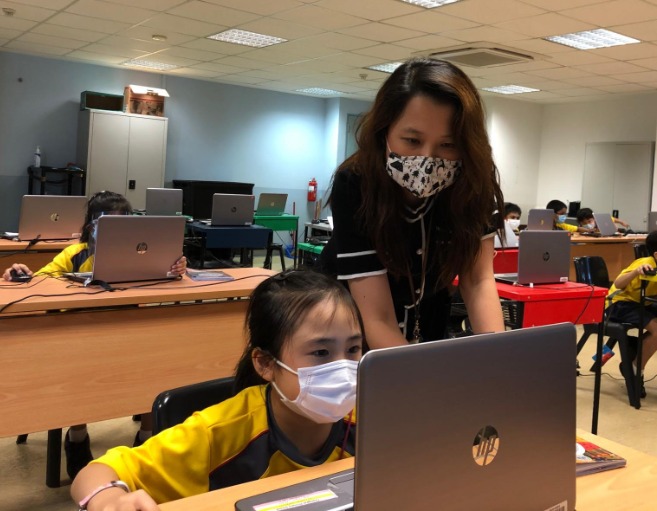Back when I was a young Mathematics teacher in a primary school, I once had a P6 student who handed in perfect homework all the time – every problem solved correctly.
Connie* scored full marks during topical tests, and it was only the first school term!
I found it curious, and when I tasked her to solve similar Maths problems in class in front of me, she couldn’t do it. Worse, when it came to the end-of-term exam, Connie failed.
After speaking to her, Connie confessed to copying her cousin’s homework and memorising past-year topical test papers. Who got the model answers for her? Her mum.
Connie wasn’t the brightest student, but she wanted to do well. She had the right attitude but the wrong method. Her mum didn’t know any better. I had to explain to Connie and her mum, that if Connie figured out how to arrive at the model answers, it would be different.
I shared my own story on how I overcame failure in secondary school with them.
I’d been doing very well in secondary school until Sec 4, when we were introduced to Additional Mathematics. I failed the subject during the semestral exam. It was the first time I failed a paper. After crying hard, I resolved to do better.
I sought help from friends who were good at the subject. I looked at their homework to see where I could do better, but I didn’t copy their answers. I kept practicing and increased my understanding of the advanced mathematical concepts, and eventually obtained an A2 grade for Additional Mathematics.
Connie just wanted to complete her homework and copied the answers. If she kept copying, she wouldn’t be able to handle the PSLE, and would have fared badly even if she had done well in topical tests.
Connie stopped copying blindly, learned how to do the questions and passed the PSLE. I was glad we could rescue her in time.
As a Primary school principal, I would occasionally spot students in a corner, copying homework before morning assembly. I would always counsel them.
This is what I would usually explain to them: “You do not learn Math by memorising answers. You learn by understanding the Mathematical concepts and how to apply them. These are skills you practice by solving the problem sums yourself. Only then will you be able to spot your own mistakes and learn from them.”
Today, it’s easy for students to simply Whatsapp each other and ask for answers. I’ve come across parents who tell their children to do so.
So, I would remind students not to let friends copy their homework, even when they felt that they want to help their friends. One P3 boy told me: “Mrs Wong, you scold me, but my friend will be unhappy if I don’t do it.”
Children can be very cute! But I stood my ground and said: “You’re not helping him if you do this – he won’t be able to learn to do this in his exams, right?”
Students have to do homework to get the practice in the subject. It is perfectly okay to get answers wrong. However, students must at least try to solve the problems themselves. This will help them better understand why they made certain mistakes. Keep trying and learning, and they will reap the rewards of their efforts.
Mrs Wong Bin Eng was principal of Saint Andrews Junior School (SAJS) for six years, after serving as principal of Tampines Primary School and vice-principal at Jiemin Primary School. She has retired after being in education for 33 years.






